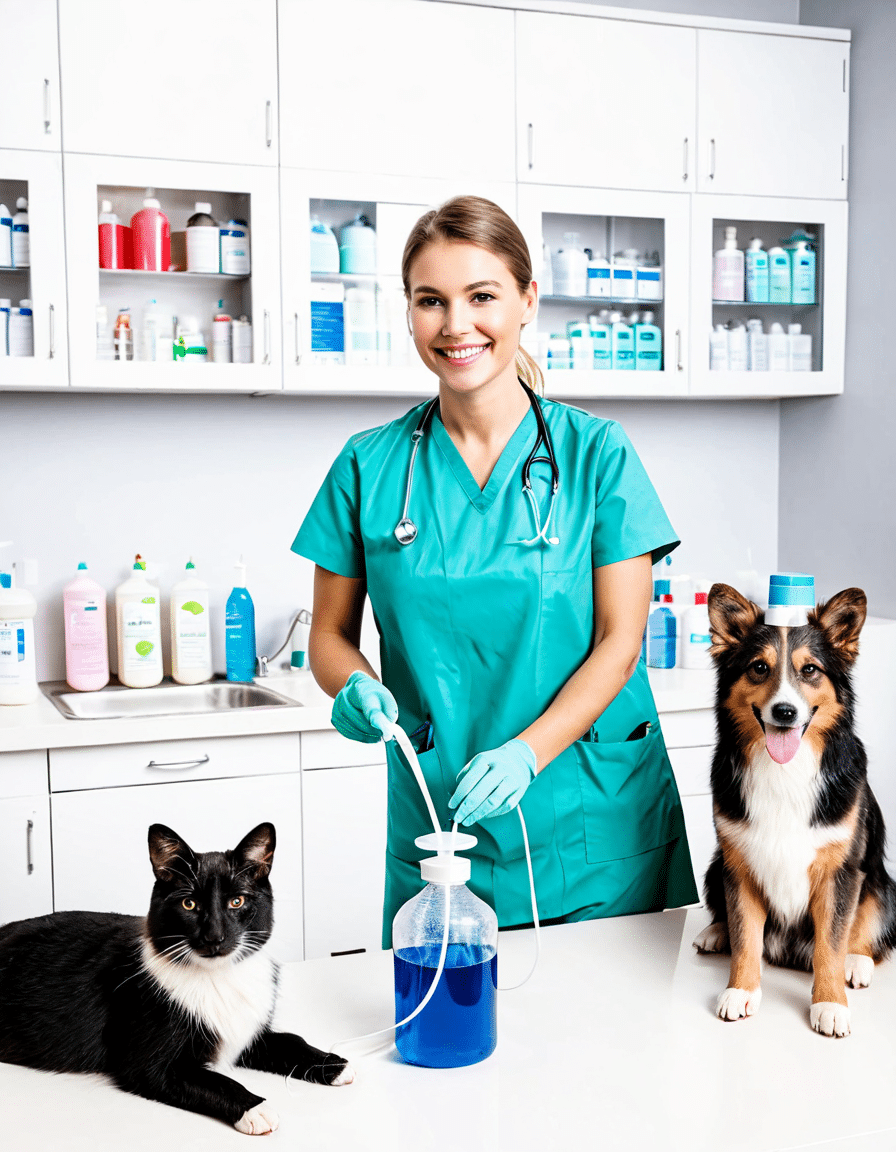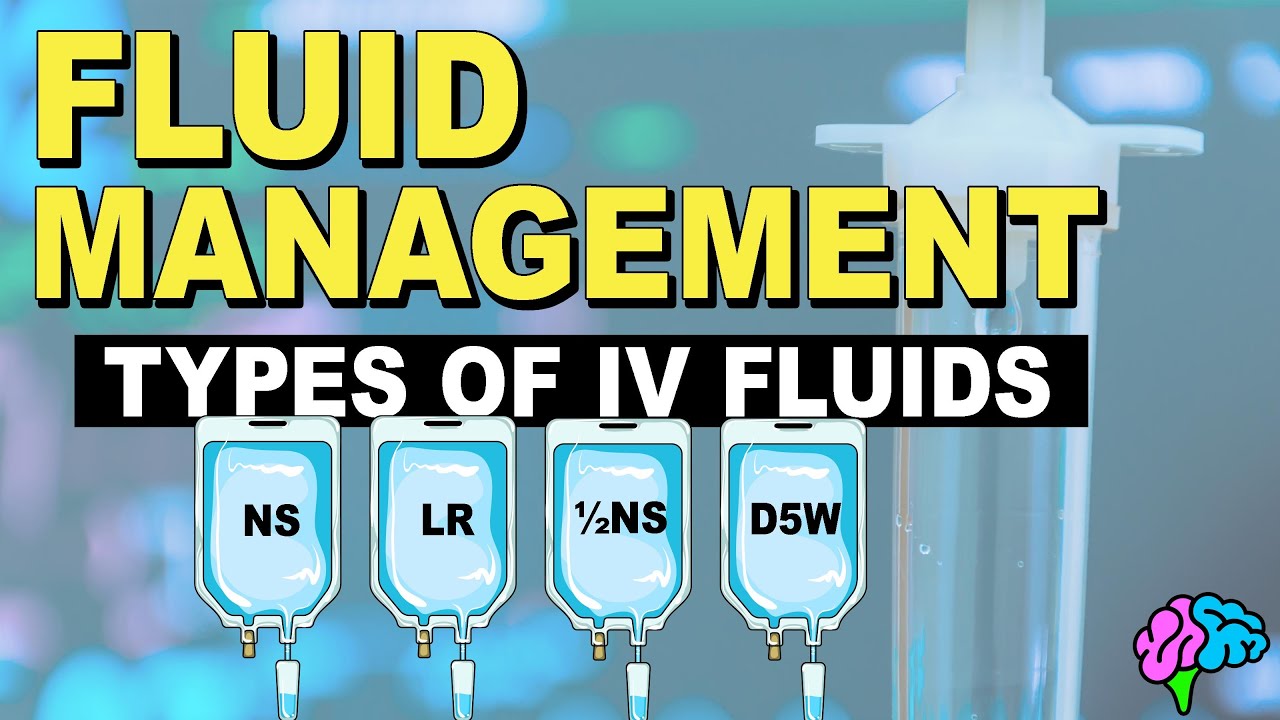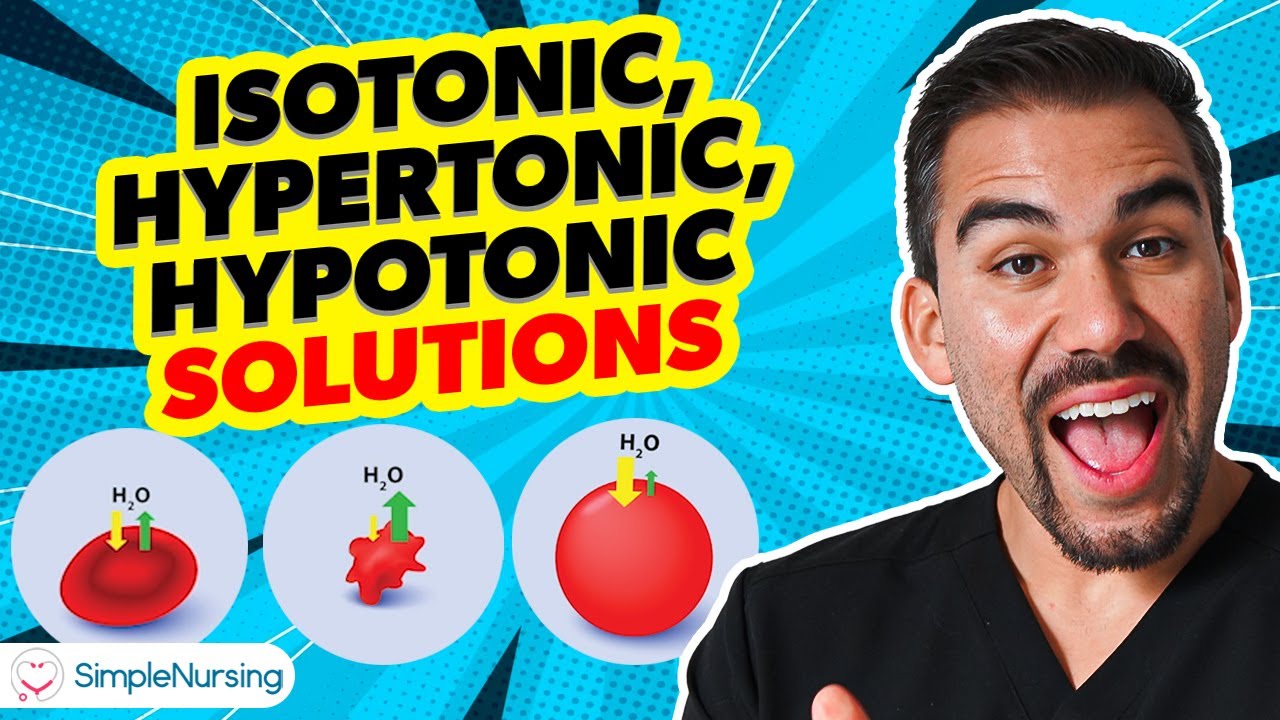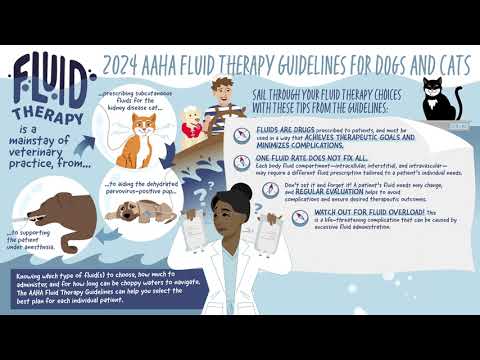Understanding the kinds of fluids in vet med is critical for your pet’s well-being. Veterinary professionals use various fluids to tackle issues like dehydration, aid recovery from illnesses, and improve overall health. This comprehensive guide will delve into the primary fluids used in veterinary medicine, explaining their purposes and how They contribute to your pet’s vitality.
1. IV Fluids: Lifesaving Hydration
Intravenous (IV) fluids are a cornerstone of veterinary care, especially in emergencies. They can perform several vital roles:
The beauty of IV fluid therapy is in its versatility. It isn’t just about hydration; these fluids can also facilitate the movement of fluids between compartments due to osmosis. There are three types of IV fluids—isotonic, hypotonic, and hypertonic—each serving a unique purpose based on your pet’s condition.
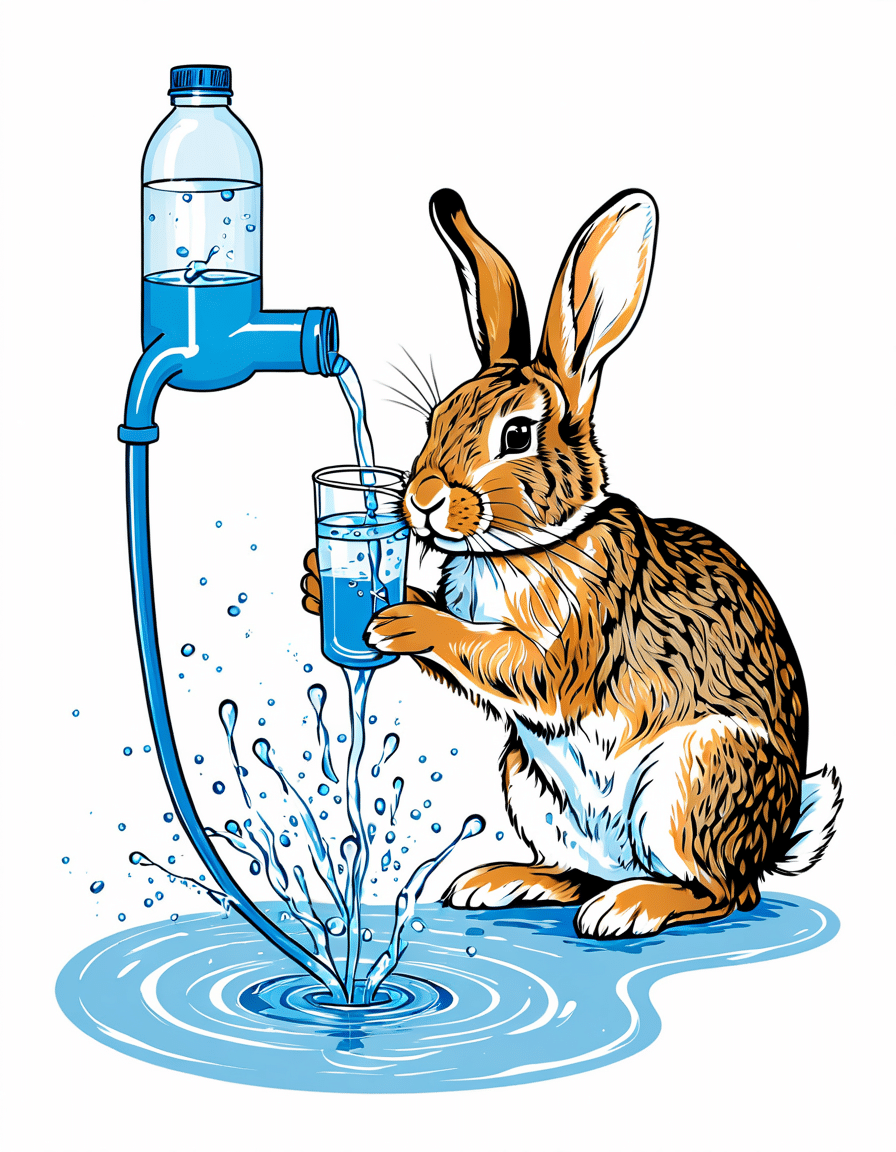
2. Subcutaneous Fluids: Home Care Remedies
For pets dealing with chronic conditions like kidney disease, subcutaneous (sub-Q) fluids can become a game-changer. Administering these fluids at home allows pet owners to:
Learning to give subcutaneous fluids can feel daunting at first, but with some practice, it can be a straightforward process. Pets often tolerate these injections well, and many owners find it’s a manageable part of chronic care.
3. Oral Rehydration Solutions: Convenient Choices
Oral rehydration solutions like Pedialyte can act as effective tools for pets facing mild dehydration. These options are especially useful after episodes of vomiting or diarrhea, helping to:
While not a substitute for medical treatment, having an oral rehydration solution on hand can ensure your pet remains hydrated during minor health issues. Just be sure to check with your veterinarian before using any oral solutions at home.

4. Blood Products: For Severe Cases
In more severe situations, blood products may become necessary for pets. Key components include:
Blood transfusions can make a world of difference for a pet in critical condition. Having such options available ensures that your pet receives the best care when it matters most.
5. Dietary Fluids: Clinical Nutrition
Specialized dietary fluids have a significant role in clinical nutrition. Brands like Hill’s Prescription Diet or Royal Canin Veterinary Diet create products specifically formulated to:
It’s essential that these dietary fluids not only provide hydration but also supply the specific nutrients your pet requires to regain strength and health. Always consult with your veterinarian about the best options.
6. Isotonic Solutions: Balancing Act
Isotonic solutions such as Dextrose 5% and Normosol-R are crucial for maintaining balance in an animal’s body. These fluids work to:
Using isotonic solutions appropriately can help ensure your pet stays hydrated and avoids complications related to dehydration or poor hydration status.
7. Lactated Ringer’s Solution: Versatile Use
Lactated Ringer’s Solution (LRS) stands out as one of the most widely used fluids in vet med, thanks to its comprehensive electrolyte support. It contains:
With its balanced electrolyte composition, LRS is often the go-to choice for veterinarians aiming to optimize a pet’s overall condition.
Important Questions to Ask a Veterinarian
When discussing fluid therapy for your pet, asking the right questions can make a world of difference. Here are some essential points to cover:
Don’t hesitate to reach out to your veterinarian for clarification on any aspect of fluid therapy. A proactive approach pays off in your pet’s health.
Financial Insights: What to Expect
Pet owners often worry about treatment costs, especially when it comes to fluid therapy. On average, small animal veterinarians in the U.S. earn between $80,000 and $100,000 annually. This figure can provide context when assessing your treatment options.
Understanding how this cost relates to the care your pet is receiving can help you make informed choices. Quality veterinary care is an investment in your pet’s health and happiness.
Is Pet Vaccination Covered by Insurance?
Healthcare costs can be a sticky subject, especially regarding pet care. Many pet insurance policies cover vaccinations for illnesses such as distemper and rabies. However, each plan varies, so it’s wise to:
Confirming coverage for both vaccinations and routine care can lead to better financial planning. Don’t hesitate to consult with your provider to clarify what’s included.
Heartworm Treatment Close to Home
If you’re wondering where to find heartworm injections for dogs, several facilities recognize the urgency of this treatment. Clinics like Cozy Cat Veterinary Hospital in Arizona are well-regarded for their effective heartworm treatments.
When searching for which veterinarians offer heartworm injections for dogs near Arizona, don’t hesitate to reach out to local clinics. They can provide personal recommendations based on your pet’s needs.
In summary, understanding the kinds of fluids in vet med is essential for any pet owner committed to their companion’s health and happiness. With appropriate fluid therapy, timely veterinary interventions, and proactive inquiries, you can significantly enhance your pet’s quality of life. The proactive steps you take today will pave the way for a healthier tomorrow for your furry friend.
Kinds of Fluids in Vet Med That Help Pets Thrive
The Essentials of Veterinary Fluids
In the bustling clinic atmosphere, kinds of fluids in vet med play a vital role in keeping pets healthy and happy. From hydration solutions to nutrient-rich fluids, veterinarians harness these substances for various purposes. Did you know that cats are particularly sensitive to dehydration? A lack of fluids can lead to serious health issues, making hydration therapies like subcutaneous fluids critical. Much like understanding how some cats enjoy peculiar foods, like Cats And cinnamon, recognizing a pet’s needs is essential for their well-being.
Another interesting fact: pets like Maine Coon kittens thrive on proper nutrition and hydration, especially during growth spurts. When a vet administers fluids to a pet that has been vomiting or has diarrhea, They ‘re like the hero in a rescue mission! Just as savvy students use i ready Hacks to navigate their studies more effectively, veterinarians employ their knowledge of kinds of fluids in vet med to ensure recovery and rejuvenation.
Specialized Fluids for Different Situations
Not all fluids are created equal in veterinary medicine. For instance, balanced electrolytes are often used for critically ill animals, while hypertonic fluids can help stabilize those suffering from shock. It’s quite fascinating how the right fluid choice can make all the difference! Have you ever wondered if can Cats burp? Well, they can, but the focus here is on how even hydration can link back to a pet’s digestive health.
When administering a Maine Coon mix cat their medications, specialized fluids can aid digestion and absorption while preventing stress on the system. It’s a bit like enjoying a tasty meal, such as Wingstop voodoo fries, where the perfect combination makes the experience memorable. The interplay of kinds of fluids in vet med ensures that pet owners can feel confident in their furry friends’ recovery journeys.
The Science Behind the Fluid Selection
Lastly, there’s a science to selecting the right gathering of fluids! Whether it’s intravenous isotonic solutions or ringers lactate, veterinarians are always prepared to tailor their approach based on each pet’s unique needs. Just as Rachel Zegler’s portrayal in Snow White brings a fresh perspective to a classic tale, advancements in veterinary fluid therapy continue to bring hope to pet owners wrestling with health concerns.
So, the next time you see your pet looking a little under the weather, remember that kinds of fluids in vet med could be their ticket to wellness! With the right care, these fluids help our beloved pets bounce back and thrive—so here’s to happier, healthier furry family members everywhere!
